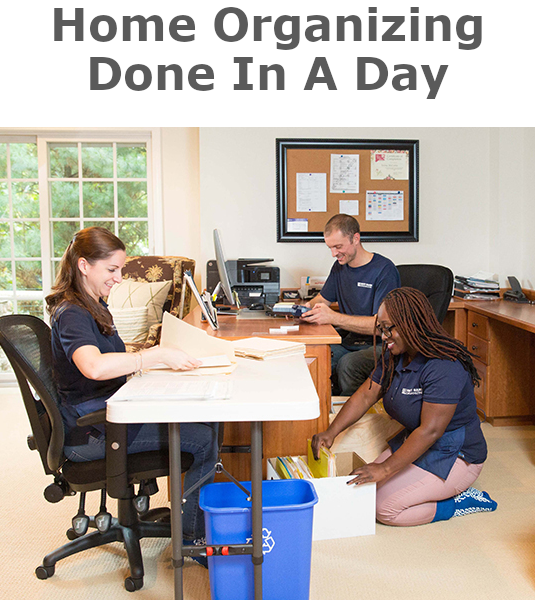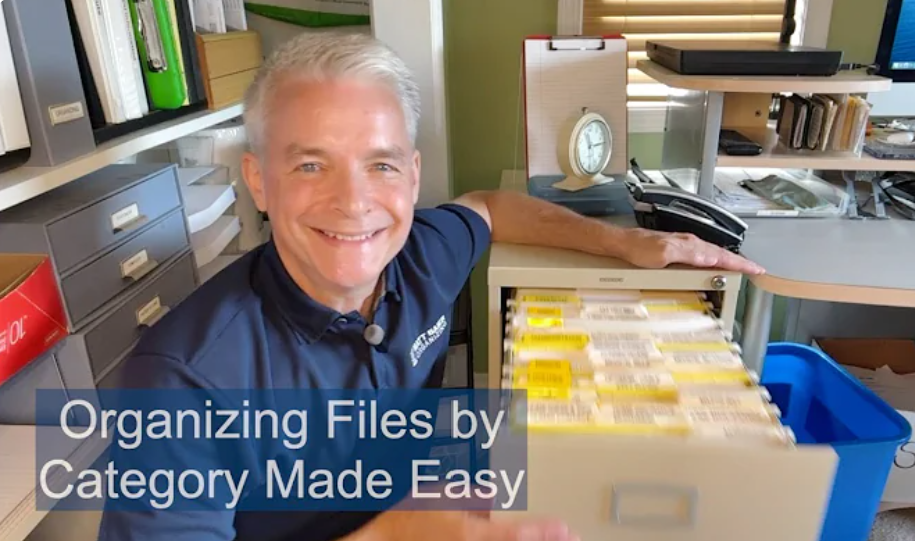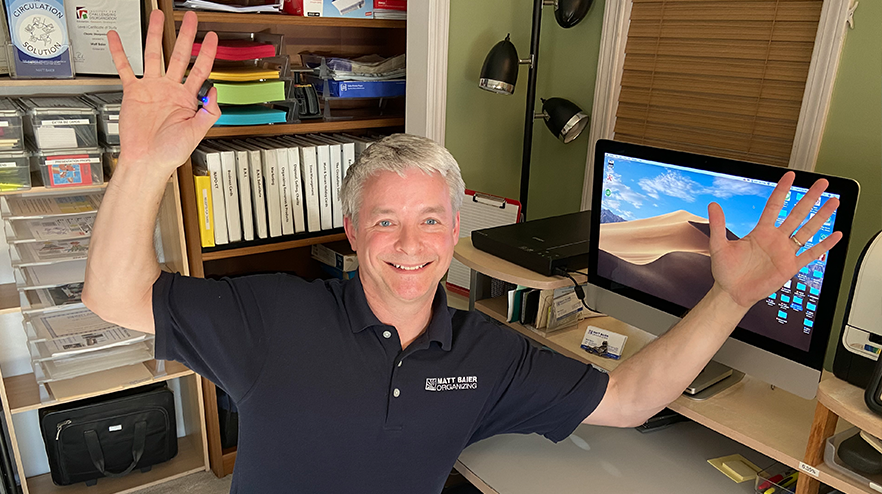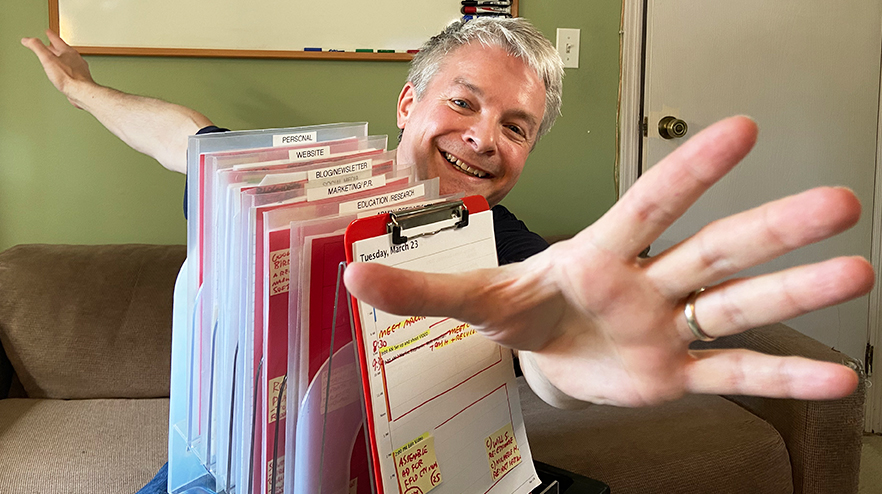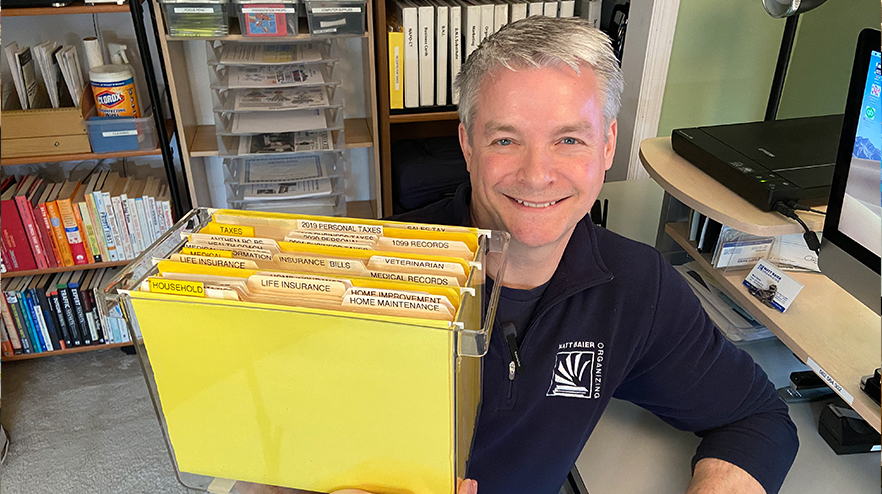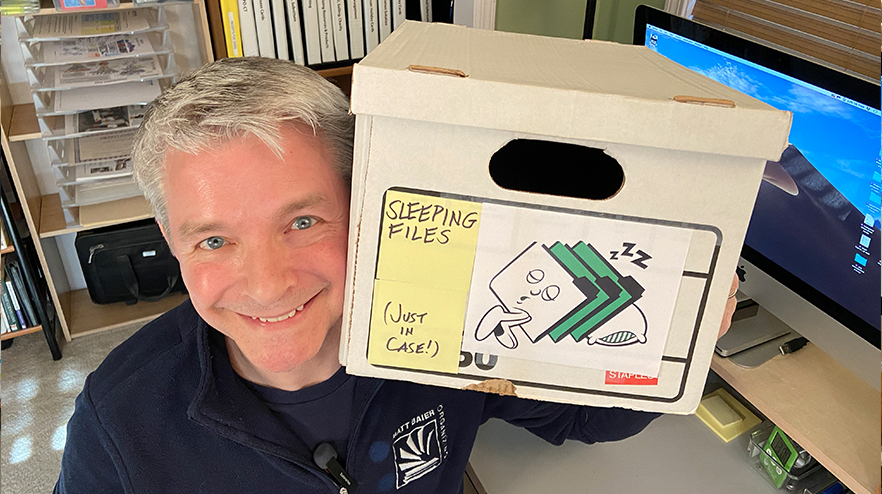It’s all too common to think of a file cabinet as a place to make paper go away. It’s not. It should be a safe place to store files where they can be FOUND reliably.
Don’t put things you want to make a point of acting on in your file drawer. They will be out of sight out of mind. Instead, they need to be out where they are more compelling.
Don’t waste valuable file space on old tax supporting material and statements. These can be stored in boxes more remotely.
Don’t stuff something into your file drawer unless you are clear on WHY you are keeping it. If you can’t provide a reason, you probably don’t need it at all.
There’s essentially 3 types of things that you need to find in a file:
1. information
2. records
3. statements
Information is to refer to for FUTURE events. Records are refer to for PAST events. Statements are to refer to the PRESENT tax year.
I find it easier to find files when they are kept in just a few simple categories. I keep information, records, and statements in manila folders, within wider category files. Some typical categories are utilities, household, insurance, transportation, medical, finances (or credit and banking), investments, and taxes.
Don’t get hung up on files just being for “important” stuff. If it’s something you want to find reliably it’s worth filing. For example if you have printed out a joke that made you laugh and you wanted to share it with your sister, create a “smile fille.” The next time she calls or visits, you will know exactly where to find it.
Of course you could keep digital files, that you want to find reliably, in a file folder on your computer. It’s the same principle. The nice thing about digital files, however, is that you can share them immediately through email.
It’s a great time of year to go through your file cabinet and sort out the material that could go to archives, items you may want to make a point of acting on, and junk that you know you’re never going to need. You’ll free up room in your file cabinet for new incoming files. Finally, by clearing out the deadwood, you make it easier to FIND the important and more current files.
Remember, if it’s not findable, it should not be file-able.
Please Share With Your Community
Related Posts
Testimonials
What some of our clients are saying
Imagine An Organized Home






